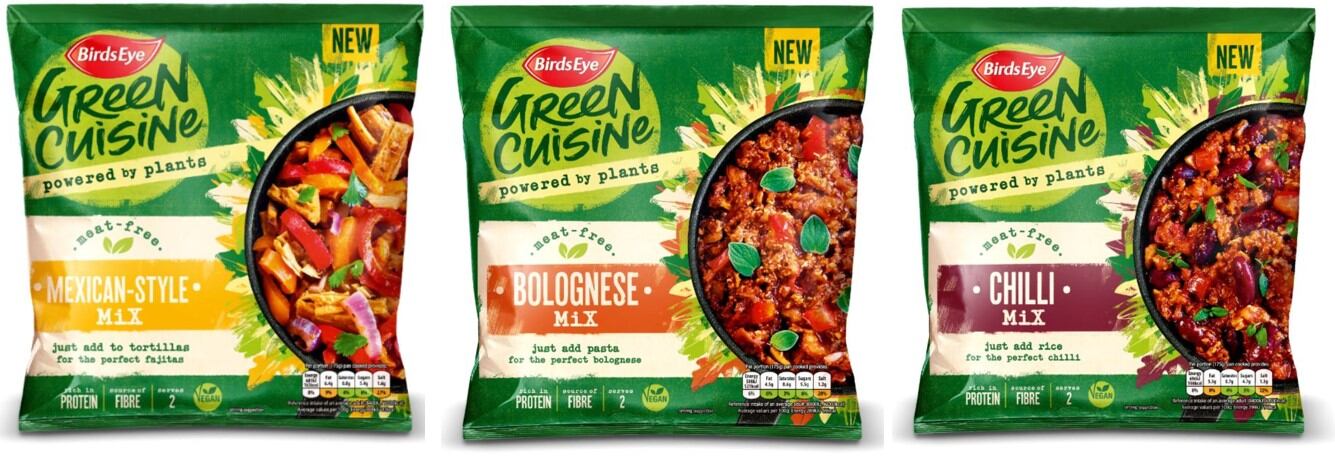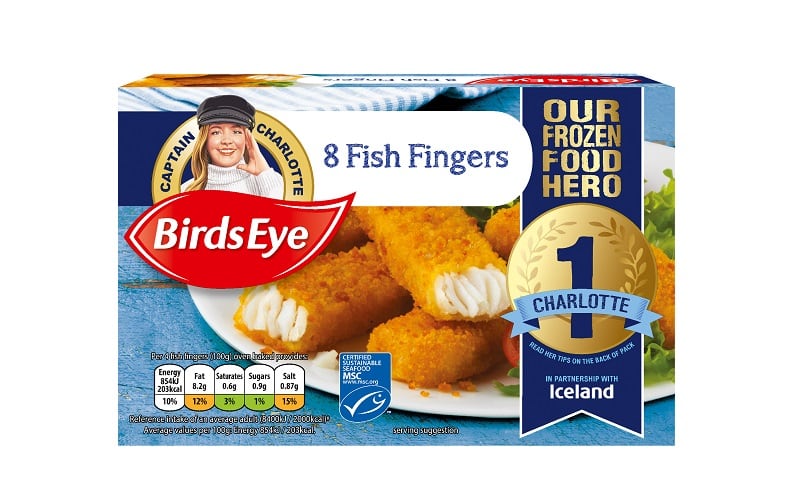The Birds Eye, Iglo and Green Cuisine owner reported that its revenue rose to €683 million in the first quarter of 2020, a rise of 10.5% compared to the first quarter of 2019. Gross profit increased 4% to €199 million.
The company also upped its earnings estimates for the full year. It now expects EBITDA (earnings before interest, taxes, depreciation and amortization) of €450 to €460 million versus the prior expectation of €440 to €445 million.
Stéfan Descheemaeker, Nomad Foods’ Chief Executive Officer, told a conference call with investors that frozen food has proven to be one of the fastest-growing and most durable FMCG categories throughout Europe in the past four months.
“First quarter revenues and earnings were significantly ahead of our expectations due to the unprecedented level of consumer demand for frozen food driven by the COVID-19 pandemic," he said. "This change in consumer behaviour, which began in early March, has continued into the second quarter with in-home consumption the most meaningful driver. Our organisation has collectively risen to the challenge by ensuring the continuous supply of our products and brands throughout this crisis while prioritising the health and safety of our employees."
He added that the company’s portfolio, which also includes Findus, Aunt Bessie's and Goodfella's, “is concentrated in the sweet spots of the packaged food space, in frozen, branded and retail”.
Noam Gottesman, Nomad Foods’ Co-Chairman and Founder, said consumer sentiment amid the COVID crisis has seen shoppers gravitate towards more familiar, established and well-regarded brands.
“Our business model and supply chain are demonstrating extreme resilience as we all adapt to the current situation. As consumers eat more meals at home and gravitate towards brands they trust, we are addressing a growing need for quality, convenient, and reliable products.”
CEO Descheemaeker added that the trend toward frozen food and home cooking among consumers would stick.
“We experienced continued robust demand throughout the second quarter, even as restrictions were relaxed across Europe beginning in early May. Frozen food has proven to be one of the most durable consumer categories throughout the COVID-19 pandemic, a testament to its role in offering families quick and nutritious meal solutions at home. These are values which we believe will transcend beyond this acute period and appeal to a broader set of consumers in a post-COVID-19 world.”
New cohorts in the frozen category
Descheemaeker said there was new interest in the Nomad brand among younger consumers.
“The impact of COVID-19 has undeniably accelerated our top and bottom line results due in large part to an influx of new consumers discovering our brands and significant repeat behavior since the start of the pandemic,” he said.
“During the second quarter, we recruited an unprecedented number of new consumers into our portfolio with 12-week household penetration up 4 percentage points to 44% across our three largest markets.”
Across each of its three largest markets, the UK, Italy and Germany, millennials demonstrated the strongest spending growth among new consumers. Descheemaeker said this was “a clear indication that our power brands Birds Eye, Iglo and Findus are resonating with this important and influential set of shoppers.”
Nomad also announced it will continue to expand its range of Birds Eye Green Cuisine meat substitute products.
Green Cuisine was available in only two countries at the start of the year. It is now available in 10 European markets, and will be in all of Nomad’s markets by early 2021.
“Our expansion of Green Cuisine will only further strengthen our appeal among millennials, given the high-value that they are assign on food that is healthy, convenient and sustainable,” noted Descheemaeker.
“Consumer interest in our iconic brands has never been higher. Moreover, expansions into the plant-protein space through Green Cuisine positions the company for the possibility of accelerated organic revenue growth in the years to come.”
The recession-proof category?
Descheemaeker told investors he was confident Nomad was well-placed to fend off the threat from private-label brands, whose market share he estimated had stabilised and even declined in some countries in the past four months.
He added that frozen food, as an affordable and convenient option, would appeal to consumers ahead of “likely recession” in Europe.
Private level “does well [in recession] as well”, he admitted. But thanks to its core product range, the retention of new consumers and investments “we believe that we have what it takes to do well during these times”.



